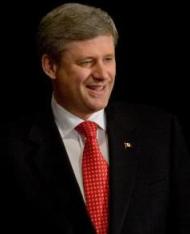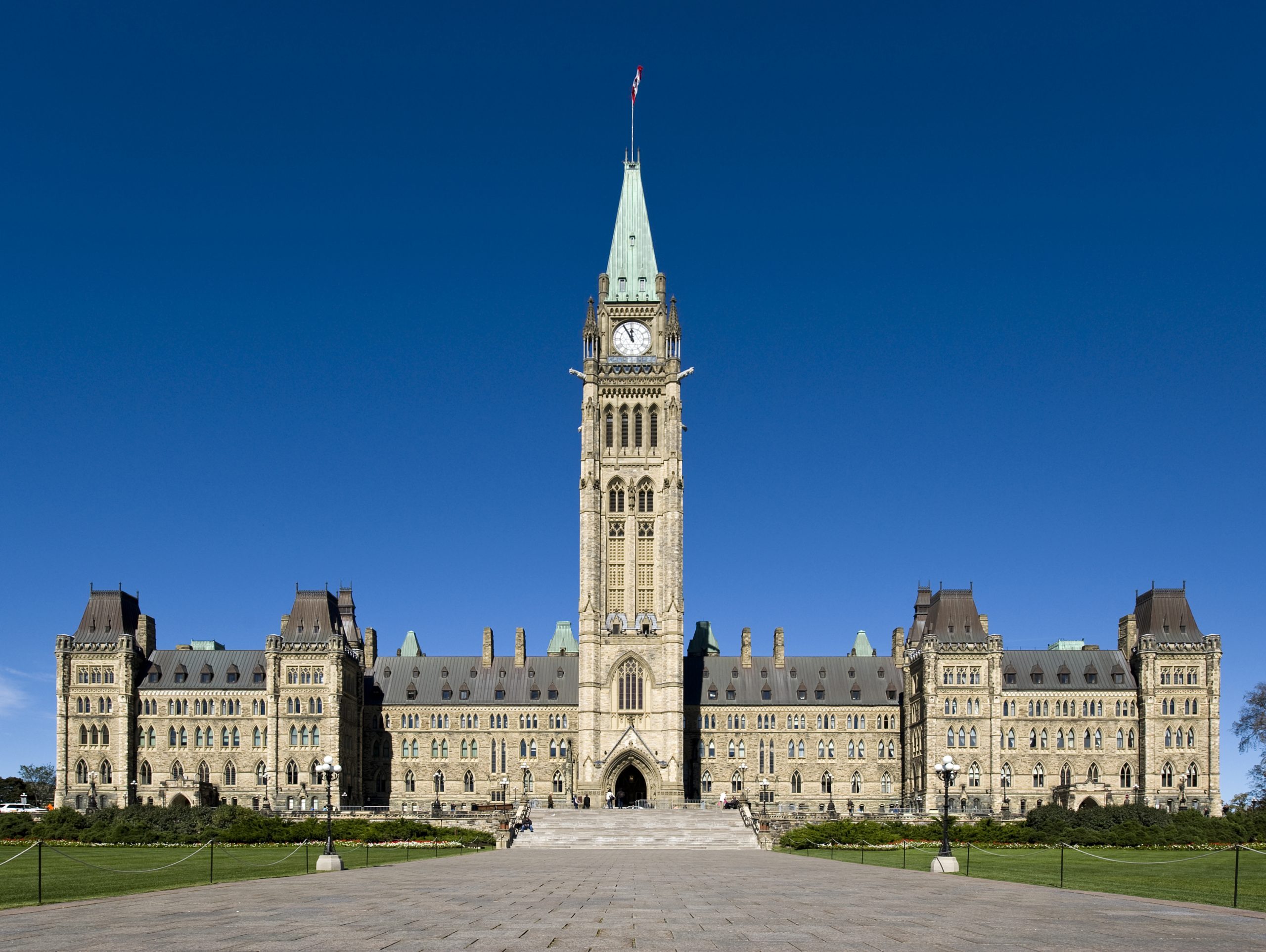Frontier Centre: You have described your fiscal bias as tilted towards lower taxes. Which federal taxes do you think should be reduced or eliminated?
Stephen Harper: I am never against reducing or eliminating any federal tax and we will have in our platform a range of tax reductions with a focus on cutting middleclass personal taxes and lessening taxes for families with children. Those will be our main focus but far from being our exclusive focus.
FC: What is your opinion of constitutional limitations on the power of government to tax and spend?
SH: I would be in favour of that kind of thing but opening the Constitution to do that will not be in our first term plans.
FC: We are seeing EI benefits extended in the Maritimes once again. Is this good policy?
SH: It is being done on a temporary basis. It is clearly being done only for electoral purposes. We have said we are not going to take the bait – we aren’t going to allow the suffering of seasonal workers in a handful of ridings become an electoral issue for the Liberals advantage. Obviously, the real focus in these areas should be growth in the economy, not the expansion of EI. That’s the longer-term direction I think everybody would like to see.
FC: Despite the growing body of evidence that Canada’s equalization programs hurt have-not regions rather than helping them. The program has been renewed once again. What are your thoughts on that?
SH: The requirement for an equalization program is the Constitution so we are always going have one. The question is what can we do to create the proper incentive system? As you probably know, we have proposed to eliminate non-renewable resources in equalization calculations because we think that is having a negative impact upon, not just provincial finances, but on growth incentives. This is one thing that can be done.
FC: Do the ideas of swapping debt or taxes for transfers appeal to you?
SH: It is not something I’ve looked at carefully at the moment, we have looked at a number of options but that is not one that we are focusing on at the moment.
FC: Many of Canada’s mayors are promoting the idea that the federal government should bypass the provinces and deal directly with cities. Where do you stand?
SH: I believe the federal government must consult the provinces. This is their area of constitutional jurisdiction and they have significant responsibilities to ensure that municipalities are ultimately accountable. We want to transfer some revenue to municipalities but we will do it only through the provinces.
FC: As usual, healthcare will be a hot topic in the next federal election. You have stated that you are unconcerned about who delivers the services. Please explain.
SH: This has become the increasing debate. We have seen the emergence in the last few years of alternative delivery of publicly insured health services and that includes not just traditional public sector delivery but non-profit delivery and even for profit enterprises providing investments into services which are ultimately publicly insured. I think the issue is access to, not the management structure of, the services. Frankly, some private involvement is probably essential to get long run investment.
FC: On a whole range of trade issues including, most notably, beef and lumber, Canada has paid little attention to the danger of disruption until it is too late. What will a Conservative government do to keep the American border open to our goods and services?
SH: The first thing we are going to do is try to maintain good relations with the United States. I think under this government we have had a generally anti-American tilt. That certainly influences some of these disputes -BSE being the most obvious. We need to sit down with our American neighbours over the next few years and see if there aren’t ways we can come to an enhanced relationship where we recognize their growing needs for security in the old fashioned sense of military defense, global security and that they will have a better understanding of our need for economic security for key exporting industries.
FC: How would you counter growing American fears that Canada is not doing enough to control its borders and address continental security concerns?
SH: A major part of our platform is to increase our defense spending and to have a much higher vigilance about crime and security issues generally which ranges from ordinary Canadian criminal justice matters through to things like dealing with undocumented refugees.
FC: Where do you stand on immigration? Is Canada letting in too many people from other countries, not enough, or have we got it about right?
SH: I don’t tend to think of immigration policy in terms of numbers. First of all, immigration is primarily and always has been a benefit to the country and should be encouraged. We need to always be looking at the system to ensure we are getting the maximum economic benefit out of immigration. I think some changes could be made to encourage that, but I am focused more on that than on numbers.
FC: Rightly or wrongly, Canada’s military commitment is widely regarded as insufficient and our spending on defense a joke. What approach would you take?
SH: We are going to increase defense spending by about $1.2 billion per year over the next several years with a longer run objective of getting us to the NATO average of defense spending.
FC: What means do you suggest for strengthening accountability and transparency in Canada’s First Nations?
SH: Some of this obviously has to be handled on a case-by-case basis. We would link the development of self-government initiatives to improved accountability and transparency. I think that’s the way to pursue these things because most First Nations government do want more authority and do want greater latitude.
FC: Would you abolish the Indian Act?
SH: I would certainly like to see the Indian Act replaced with something more modern but what we are seeing in the evolution of this is probably having to deal with bands getting out of the Indian Act on a case-by-case basis.
FC: Do you believe that human activity is contributing to global climate change and what is your position on the Kyoto Accord?
SH: I think these are subjects where we know a lot less than some claim we know. Climate is always changing. My suspicion is that human activities have some impact upon that but I think the jury is out on a lot of the actual specific trends. We don’t support implementation of the Kyoto targets. We think they are unfair and unrealistic and our platform proposes we focus more directly on pollution control.
FC: Do you support new carbon taxes?
SH: No, but as long as the Liberal government supports the Kyoto Accord and won’t tell us how us they will achieve the targets I think we have to assume that a Liberal government will, at some point, start with taxes.
FC: Gun control, the Fisheries Act – there are all sorts of federal policies which adversely impact on rural Canada, especially on the Prairies. Do you have any comment on that?
SH: As a general comment this is a government that has been totally insensitive to rural concerns. Paul Martin went around the country the last couple of years trying to change his terminology, and now he’s going around the country talking about a cities agenda. I think that says everything you need to know about the Liberals. If you are not a city, you don’t exist. As for gun control, the complete lack of understanding of how guns are used in a rural culture has been at the top of that spending a billion dollars to register a bunch of long guns. This has been just an absolute waste of money and nonsense from the beginning.
A lot of environment policy, Species at Risk legislation for example, and other policies are simply not framed with rural concerns in mind. I think one of the biggest shifts you would see in a Conservative government would be a much more balanced understanding of the difference between rural and urban concerns.
FC: You are likely aware that the Fisheries Department has developed a very heavy handed jurisdiction here on the Prairies forcing farmers to put in impact plans for drainage ditches on roadways and so on. One option to return to more sensible regulation would be to have the provinces regain control over their fisheries. What do you think about that?
SH: I am open to some of that discussion. I have said even in the case of off-shore, that I would like to see more resource jurisdiction to the provinces. I would think that with inland resources, there would be a lot of room for a lot more local and provincial control over those matters. I am very open to that and said so recently when I was on a trip to Nova Scotia talking about how the federal authority over navigatible waterways has become all encompassing.
One other thing I might mention on the rural economy – one perspective that isn’t understood – is that you look at all the core rural industries, forestry, fishery, farming, mining, the one exception being energy I guess, energy and tourism – these have all been in decline. The rural economy in Canada with the exception of Alberta, principally, and interior B.C., has been in recession for decades in most cases. This should be a major challenge for a future government.
FC: If we flash forward to the year 2050, and historians were writing about how Canada changed after you were elected Prime Minister, what would you like to hear them say? What legacy do you hope to leave if you are successful?
SH: Boy, 2050 is a long time. Of course, you want to hear them say that you were the greatest Prime Minister in history. We have objectives to get us on a path towards greater long run prosperity; more importance in the World – Canada’s importance in the world is fading. I would also like to see some substantial democratic reforms to modernize our political system. If those are three things I could accomplish, I would be pretty happy.
Let me add another one which would probably be the greater achievement in terms of a historian writing on politics. I would like to say this was the era in which Conservatives established themselves as the natural government party of the country and that is my political objective.
Read in PDF format here.



